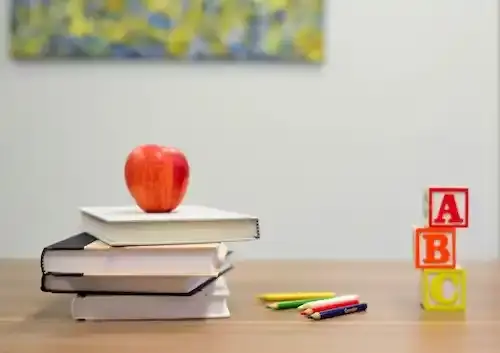Breaking the code of learning: does repetition really help?
Let's start with the memory challenge. Spend only two minutes reading the table of contents above to memorize it as quickly as possible. Now, look away and try to remember the points in the list. How many of them do you remember?
Show key points
- Rote memorization involves repeating information without understanding it and has been traditionally used in education for quick recall.
- While routine repetition can strengthen neural connections through neuroplasticity, it often fails to support deeper learning or real-world application.
- The hippocampus plays a key role in temporarily storing new information before transferring it to long-term memory in the cerebral cortex.
- ADVERTISEMENT
- Techniques like spaced repetition are more effective than simple rote learning, helping to retain information longer by engaging the brain at intervals.
- Studies show that children who memorize basic math facts can free up cognitive resources for more complex problem-solving later on.
- Rote memorization may benefit elderly adults by promoting neuroplasticity and supporting cognitive health.
- Modern educators are increasingly favoring active and meaningful learning strategies over rote methods due to their lasting impact on understanding and application.
Have you repeated the words to memorize them? If yes, you're learning it by heart.
What does it mean to learn by heart?

Learning by repetition is known only as the routine or rote memorization method, and it does not involve any need or attempt to understand the material. Just as we store data in a computer, we use this technology to store data in the brain, even temporarily.
For centuries, rote memorization has been a popular means of educating students around the world, but more recently, it has been criticized by contemporary thinkers and teachers. The reason is simple, it can be that this method may allow for quick recollection of some pieces of information, but it does not promote a deeper understanding of the topic.
Recommend
Many teachers still believe that learning by repetition is fast and effective. With this mindset, they may tell you that the more you read or write something, the better you can remember it.
What are some of the techniques of learning by heart?

Some common examples of learning through repetition are only spelling or counting exercises, multiplication tables, the periodic table in chemistry, the repetition of facts and numbers (names, dates, etc.) and mental filling, or the "intensive study" of information before exams... The list goes on.
The question is, does routine rote memorization really help us learn better or offer any long-term benefits? Let's see what science tells us.
Advantages of the method of rote memorization

The brain is always changing; memory is a dynamic process.
We all know that a neuron is the basic unit of the brain. When you learn something, new connections are made between neurons, a process called neuroplasticity. The more you practice something, the stronger those neural connections become.
The part of the brain that is critically responsible for memory is the hippocampus.
The hippocampus records and stores the information we enter into the brain, but the information here is only available for a short period of time. The hippocampus then sends the information to be stored in long-term memory in different parts of the cerebral cortex.
These are some of the psychological procedures and processes related to memory, which are still under current and active scientific research and investigation.
A study conducted at Stanford University School of Medicine showed that when young children learn math by heart, they can free up their working memory space, allowing for further skill development. In fact, the brain prepares itself for more complex mathematics and high-level critical thinking. So, in a way, routine rote memorization is likely to boost cognitive development in children.
It is well established that the method of rote memorization can be of great help in the development of basic skills, such as learning the alphabet. After all, without the ability to remember the basics, you cannot move on to a higher level of knowledge.
Is it the same for adults?

Research in elderly participants has revealed that routine learning by heart can also improve neuroplasticity in the brains of elders.
Another strategy called spaced repetition, a more nuanced version of the routine repetition method, requires you to review the content of your study at regular intervals, not just once. By stimulating the brain to make connections between neurons stronger, it helps us retain knowledge for longer.
Disadvantages of a routine learning style by heart

On the flip side, there are also reasons why this routine method is not preferred.
Let's admit it. Rote memorization is a repetitive and boring work. It's hard to concentrate when you read (or write) some parts and pieces over and over again without knowing their meaning or linking them to something you've learned before. Nor does it equip you with the ability to apply your knowledge in real-world situations.
Students who develop a proper understanding of the subject have been shown to be more successful in the long run than those who learn by memorizing alone.
Therefore, teachers nowadays show greater interest in constructive New Age methods such as active learning and meaningful learning.

We must repeat that the next time you accumulate information to get a quick solution to finish your curriculum, you will probably forget the facts immediately after the test.
Although learning through repetition only makes sense with basic concepts, such as basic vocabulary and counting, it's not an effective way to master any subject or subject at an advanced level, nor if you're looking to use this information for the rest of your life.
![]()
Scientists wonder if the universe looks like a donut cake
Scientists are exploring the universe’s shape and structure, searching for signs of cosmic loops and mirrored galaxies. Using improved CMB maps and powerful telescopes, they aim to uncover if the universe is finite—and perhaps one day map it all, like a cosmic version of Google Earth. more- ADVERTISEMENT
![]()
Surprising fact: The environmental impact of beef outweighs cars
Cows may seem innocent, but their burps and farts pack a punch—methane from cattle is 23 times stronger than CO₂ and causes major environmental harm. From deforestation to acid rain and massive emissions, beef production beats cars in damage. Eating less beef could seriously help the planet. more- ADVERTISEMENT
![]()
The Sahara Dilemma: Are Deserts Vital to the Balance of Our Planet?
Deserts may seem lifeless and harsh, but they’re vital to our planet. They store carbon, support unique species, and even help nourish the Amazon Rainforest. Despite their importance, human activities threaten these fragile ecosystems. So yes—deserts matter, and we need them more than we think. more- ADVERTISEMENT
![]()
The Genius of Nature: 8 Amazing Technological Innovations Inspired by Nature
Nature inspires some of the coolest tech—like butterfly wings improving solar cells or kingfishers helping trains go quiet and fast. Even surgical needles got less painful thanks to mosquitoes. From firefly-inspired LEDs to Velcro born from prickly plants, the wild world is secretly shaping our everyday innovations. more- ADVERTISEMENT
![]()
Proven ways to build your confidence
Self-confidence isn't about being perfect—it's about knowing your strengths, embracing your flaws, and growing through experience. Celebrate small wins, speak kindly to yourself, and keep learning. With each step forward, you’ll prove to yourself that you are capable and ready for life’s challenges. more- ADVERTISEMENT
![]()
Alert from the Northern Lights: Sun's activity is at its highest level in 23 years with the Northern Lights
Alert from the Northern Lights: Sun's activity is at its highest level in 23 years with the Northern Lights more- ADVERTISEMENT
![]()
Why is a minute divided into 60 seconds, an hour into 60 minutes, with only 24 hours a day?
Why is a minute divided into 60 seconds, an hour into 60 minutes, yet there are only 24 hours in a day? more- ADVERTISEMENT
![]()
10 things smart people never share with anyone
Smart people often keep quiet about their true knowledge, finances, personal struggles, and future plans. It’s not secrecy—it’s strategy. By choosing what to share, they protect their peace, maintain control, and keep life’s noise at bay. more- ADVERTISEMENT
![]()
Success Guide - How to leave any bad habit?
Getting rid of bad habits takes time, effort, and patience. Focus on one habit at a time, understand your triggers, and replace the habit with a positive alternative. Stay realistic, reward progress, and don’t be discouraged by setbacks—just get back on track and keep going. more- ADVERTISEMENT
![]()
Saving our seas: Can we remove plastic pollution?
Plastic pollution is everywhere—from oceans to our drinking water. Ocean cleanup efforts like The Ocean Cleanup aim high but also come with side effects, including harming marine life and adding to carbon emissions. The real solution? Stop single-use plastic at the source before it ever reaches the sea. more- ADVERTISEMENT





















